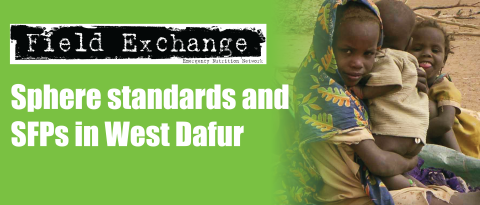Update on the IPC Online Global Forum

The Integrated Food Security and Humanitarian Phase Classification (IPC) is an innovative set of tools (including a reference system and supporting protocols) for improving food security and humanitarian situation analysis, highlighted in issue 28 of Field Exchange.1 Although originally developed for Somalia through the Food and Agricultural Organisation's (FAO) Food Security Analysis Unit (FSAU), the FAO and strategic partners are now developing it at the global level.
Major agencies, organisations, NGO's, academic and research institutions engaged in food security and humanitarian work have now recognised the value of the IPC framework for reaching technical consensus and issuing a clear statement about the severity of a crisis and assessing implications for humanitarian response. In this context, the IPC Online Global Forum was set-up to foster dialogue on technical and institutional issues among a widely dispersed group of participants, including food security experts from FAO, WFP, OCHA, WHO, FEWSNET, FSAU, ODI, DFID, the EC, USAID,2 Save the Children UK, Oxfam, Tufts University and many more. Participants examined key technical issues with the immediate aim of revising the current IPC manual, but with the longer term objective of seeing how they can work together in its future development and roll-out. Another objective of the IPC Online Global Forum was to create an online community of experts who could support using the IPC in several pilot countries.
The IPC Online Global Forum took place between 14 February 2007 and 16 March 2007. Discussions included:
- Overall Purpose and Limitations of the IPC
- IPC Phase Classifications and Early Warning Levels
- Reference Outcome Indicators
- Strategic Response Framework
- Communicating IPC Analysis with Maps and Population Tables
- IPC Process of Analysis
- Institutional Aspects and Implications for Future Development and Roll-out
The discussions were introduced and led by leading food security and humanitarian experts including Gary Eilerts from FEWSNET, Cindy Holleman from FSAU, Wolfgang Herbinger and Joyce Luma from WFP, Chris Leather from Oxfam, Dan Maxwell and Peter Walker from Tufts University, and Paul Harvey from the ODI. Discussions were then summarised in synthesis reports that identified priorities for moving forward with the technical development of the IPC and institutional implications.
A workshop report including discussion summaries, key findings and next steps will soon be published. Key issues that arose during the online forum will be discussed and consolidated in a face to face meeting among technical partners that will take place in Rome from March 21 -22, 2007.
For further information, contact: Denise Melvin, email: denise.melvin@fao.org or visit the IPC website at: www.fsausomali.org
1 See news piece, Field Exchange, issue 28
2 Abbreviations for World Food Programme (WFP), the UN Office for the Coordination of Humanitarian Affairs (OCHA), World Health Organisation (WHO), Food Early Warning System Network (FEWSNET), the Overseas Development Institute (ODI), the Department for International Development (DFID), the European Commission (EC), the United States Agency for International Development (USAID)
Imported from FEX website


